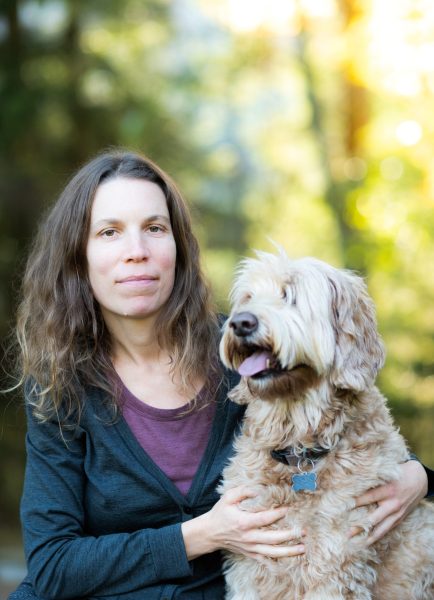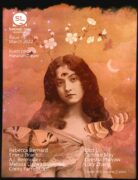In “Gods of Hunger, Gods of Want,” I love how the protagonist’s mother’s dieting and fitness attempts are portrayed as religion, and she an adherent to its various forms, even to the donning of the ritual garments (for exercise) and to the feelings of religious euphoria. What’s your inspiration for this story?
My original intention was to write something about God, to explore the notion of God and religion in my own life. But when I searched back into my childhood and youth, considering my formative experiences around the topic, I came up a bit empty. My family never spoke about God and we didn’t attend church of any kind. But I sure had a lot of unfulfilled desires, and a yearning for “something more,” which I knew was something spiritual. I decided to write about a different type of religion, where one’s worldly drives and desires attempt to function as a stand-in for God: the mundane as the sacred. The piece grew from there.
The protagonist’s mother uses dieting and fitness as control, a sacrifice of want or need—and then we see the protagonist herself beginning to do the same things, although she desperately longs to embrace a kind of gluttony for life, experience, and adventure. Do you feel as if this is strictly a female experience?
No, not at all. Both females and males experience the push-pull of desire versus control. In terms of dieting/fitness in particular, I think males and females get equally caught up in it: I could see a tense dynamic between an athletically obsessed father and his son, or even the other way around. I also think it’s common for teenagers to both mimic and rebel against certain behaviors of their parents, even (especially?) the unhealthy ones, as a way of “trying on” these behaviors to see if they fit. Other times, behaviors of the parents are so psychologically dominant that the child will pick them up unwillingly, unconsciously — and this is how generational patterns are continued on.
What was the hardest thing about writing this gorgeous piece?
The ending—the last paragraph and then those final three or four sentences. I had to let the ending marinate for several weeks. I would open the document in the evenings and work a few words or sentences at a time, then let it rest again. It required slow contemplation about what I was trying to say and how to invoke the feeling I wanted. It gradually came together with time and patience.
What one thing does this story make you think of?
When I was a teenager, I read a book called My Mother, Myself. I can’t remember much of the content, but this story makes me think of that book. It was psychological and a bit accusatory, but also compassionately relevant in helping me understand more about mother-daughter relationship dynamics.
Do you consider yourself primarily a poet or a fiction writer? Or a little of both?
Primarily a fiction writer, but I think my prose style leans happily into the poetic and the lyrical. I’m always drawn to stylistic prose and those subtle-yet-profound feeling moments that poetry inspires. I love flash because despite the limitations in word count, it’s such a flexible form: You can be wildly poetic, you can be plot-driven, you can blend fiction with non-fiction and everything in between.



 The SmokeLong Grand Micro Contest (The Mikey) is now an annual competition celebrating and compensating the best micro fiction and nonfiction online.
The SmokeLong Grand Micro Contest (The Mikey) is now an annual competition celebrating and compensating the best micro fiction and nonfiction online.